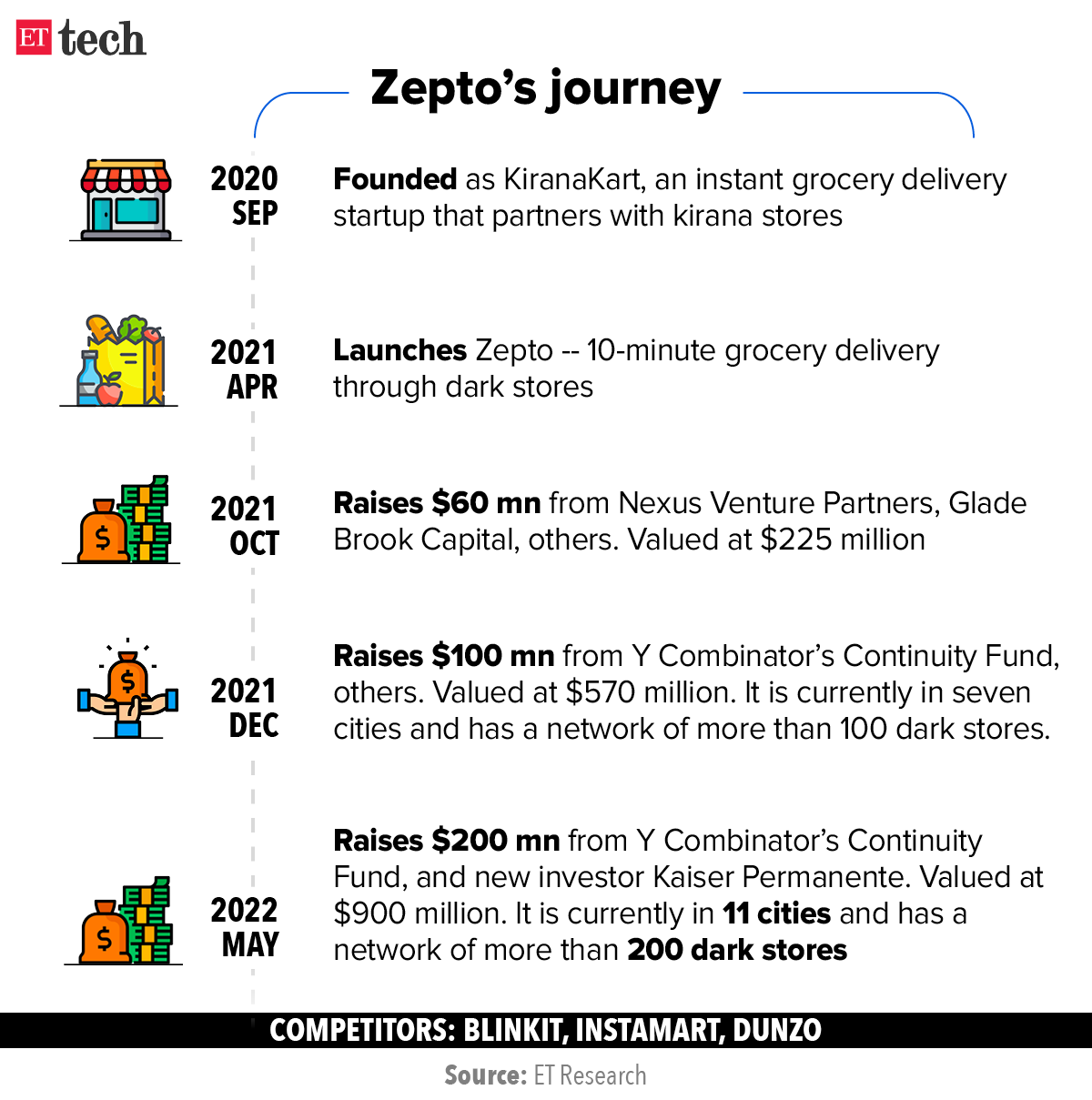Zepto’s valuation has hit $900 million after the latest round. This is a nearly 60% jump compared to the previous fundraise in December last year when it was valued at $570 million. Quick commerce refers to deliveries made in 15-30 minutes.
New investor Kaiser Permanente joined the latest round along with existing backers including Nexus Venture Partners, Glade Brook Capital, and Lachy Groom.
The Mumbai-based startup, which promises grocery deliveries in 10 minutes, faces intense competition from well-capitalised rivals like Swiggy, Reliance Industries-backed Dunzo and Tata Digital-owned BigBasket trying to tap the segment through various delivery timings.
Food delivery platform
Swiggy has earmarked $700 million to scale up its ultra-fast commerce platform Instamart, chief executive Sriharsha Majety said in December last year.
Ultra-fast commerce firms, which gained prominence during the Covid-19 pandemic, have been questioned about their unit economics and high cash-burn, which in some cases has gone up to $10-$15 million per month.
Discover the stories of your interest
In the United States and Europe, consolidation has already begun in the segment, with some of the well-funded startups like the SoftBank Vision Fund-backed GoPuff valued at $15 billion preparing layoffs to reduce costs, San Francisco-based tech publication The Information reported in March.
Another Zepto rival, Gurugram-based Blinkit (earlier known as Grofers), is in
advanced stages of closing a merger with food delivery app Zomato after struggling to raise new capital from external investors amid increased competition.
The Zomato deal is likely to value Blinkit at around $750 million, lower than when it had raised its last round, ET reported on March 17.
Swiggy’s Instamart, too, has moved away from its aggressive campaigns for 15-minute deliveries.
“It is getting clearer in the space that there will be an Amazon and Flipkart-type of scenario… and for us, the intent was to accelerate that trend,” Aditya Palicha, cofounder and CEO of Zepto told ET. “The objective here is just to get into a position where we have enough currency to start consolidating in the next year.”
According to Palicha, Zepto will also use the funds to grow its product and tech teams to over 1,000 people in a few months, including engineering, analytics, operations, marketing, finance, and human resources.
“We posted 800% quarter- on-quarter revenue growth, while our burn has come down five times on a per-order basis,” he said.
Palicha said Zepto was on track to close the current financial year at $1 billion in gross merchandise value (GMV). According to industry sources, Zepto’s monthly cash burn is said to be around $10-$15 million. Palicha did not, however, confirm this number.
Zepto will utilise the funds to take its presence to 24 cities in the next year from the existing 11, including non-metro cities.

Palicha said Zepto will reserve a chunk of the funding for possible consolidation in the market.
“The quick commerce model works on density dynamics…what people need in Chandigarh is not very different from what they need in Bengaluru or in Hyderabad… The objective is if you look at the top 30 cities in the country, the density dynamics work well,” he said.
Zepto, he added, was seeing early signs of that adoption in these cities.
Founded by Stanford University dropouts Palicha and Kaivalya Vohra, Zepto launched its quick commerce service in April 2021. As a 17-year-old, Palicha built another startup, GoPool, a mobile application that helped parents in Dubai find and schedule carpools to school.
The startup has raised $360 million till date, including the latest round.
Zepto operates out of a network of ‘cloud stores’ or micro-warehouses to fulfil orders within the time frame. These stores, also known as dark stores, are small warehouses located in the heart of a city through which orders can be delivered faster.
Other experiments
ET reported on February 15 that
Zepto was planning to tap private labels to improve margins and lower cash burn.
Palicha said private labels would be available on the app in the next one or two quarters. Meanwhile, it is piloting a service to deliver coffee, tea, and other café items in 10-minutes across select areas in Mumbai.
“…we’re pretty excited about that and we will scale it over the next quarter or two aggressively in other cities,” Palicha said.

























